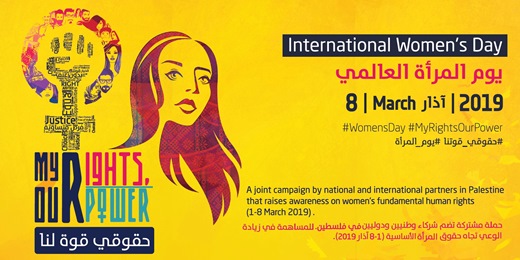Elections in Jerusalem were convened for the first time in East Jerusalem in 1996 to elect a president for the Palestinian Authority and representatives for the legislative council. The second elections were in January 2005, to elect a new president after the death of president Yasser Arafat.
The elections procedures that were agreed upon in the 1996 elections were renewed for the 2005 presidential elections. These were in summary that voting will be permitted at five Israeli-administered post offices in East Jerusalem and that the number of voters will be restricted to 5,367 voters. Israel accepted the opening of a sixth post office and increased the number of voters to 6000 for the 2005 elections. The Central Elections Committee estimated that some 90,000 eligible voters were required to travel outside the city to cast their votes at 12 voting centers in the distant suburbs.
The Israeli government considered the casting of ballots at post offices a form of absentee voting while the Palestinian Authority considered it voting in polling stations that happened to be in post offices. Voting was overseen by Israeli post office workers and no CEC officials were allowed on site. The agreement with Israel included a fee for renting the space. Ballots were deposited in "receptacles" resembling mail boxes, rather than regular ballot boxes. The ballots were transported by Israeli postal services to CEC officials, who then tallied the votes. Security at the post offices during the voting process was the responsibility of the Israeli authorities.
The above procedure and arrangements were inadequate and did not provide reasonable electoral conditions for candidates and voters in East Jerusalem. In September 2004, the Central Elections Committee opened voter registration centers in Jerusalem. 10 days after Israel closed the centers down. After the presidential election was called for in November, the CEC attempted to register voters in East Jerusalem with a door-to-door canvass of voters. But even then the number of Jerusalemites registered to vote was considerably low.
Jerusalemites expressed concern that registering to vote or voting might jeopardize their residency rights in Jerusalem. They feared that the Israeli authorities could use this information to revoke their residency rights. Israel on the other hand did not issue any statements to reassure Palestinian voters regarding their residency rights in case they registered and voted.
Candidates and their campaign workers were not allowed access to Jerusalem. Through international pressure on Israel, two presidential candidates were given permits that were valid for four hours.
On Election Day
Voters who turned up at post office polling stations closest to their place of residence were turned away because their names were did not appear on the voter list for that station. Some 60 – 80 percent of such cases were forced to travel outside the municipality boundaries to vote at one of the special polling centers. This journey lasted two hours in some instances.
No Palestinian elections officials were allowed to administer the process in the post offices. Voting booths were not permitted, instead voters marked their ballots at normal post office windows and put the ballots in an envelop which was then put into a special post box by the postal official. The boxes were then transferred by Israeli post office cars to CEC officials outside the municipality boundaries, where the ballots were counted. Throughout the boxes were under Israeli security and control.
Conclusion and recommendations
- It is imperative that the electoral process in east Jerusalem is conducted in an equal manner as far as possible in comparison to the other electoral constituencies.
- There must be a full and inclusive registration of Palestinian voters in Jerusalem, with clear information provided as to where they will vote on Election Day.
- Voters must receive assurances that their participation in the electoral process will not in any way jeopardize their rights and status as Jerusalem ID card holders.
- The arrangements for election campaigning, including the free movement of candidates throughout the constituency must be articulated in good time before the start of the campaign.
- Candidates eligible to stand for election in Jerusalem, but currently residing elsewhere, must be afforded proper access to the constituency
- Proper, reasonable and adequate provision must be made for voting by all registered voters in the vicinity in which they live, in accordance with basic international electoral standards of equal treatment, secrecy of the vote and convenient provision of adequate polling places.
- Regular electoral officials should be permitted to oversee the proper conduct of the election, possibly in a supervisory role so that problems can be properly addressed.
International Community’s Obligations
- Implementation of the Road Map. On elections:
- “Establishment of an independent Palestinian election commission. PLC reviews and revises elections law”.
- Israel is obliged to:" Facilitate Task Force election assistance, registration of voters, movement of candidates and voting officials. Support for NGOs involved in the election process”.
- International law:
The right of Palestinians to self determination. (Article 1/International Covenant on Economic Social and Cultural Rights), (Article 1 (2) of the United Nations Charter), (the ICJ Opinion).
- Facilitate the re-opening of negotiations on the elections’ procedures in Jerusalem based on the new elections law.
- Pressure Israel to allow the CEC to implement the same elections’ procedures in Jerusalem as implemented in other Palestinian cities.
- Guarantee due process of voter registration, campaigning and polling in Jerusalem.
- Re-open voter registration centers that were closed by the Israeli Authorities on 10.05.2005.
- Assurance by the Israeli authorities that Jerusalemites’ rights will not be jeopardized by participating in elections.
For Further information, you can contact:
The Jerusalem Committee of the Palestinian Non-Governmental Organizations (PNGO) – 2963847.
Siham Rashid - Palestinian Counseling Center – 02 6562272 or 02-6562638 or 0544699620.




